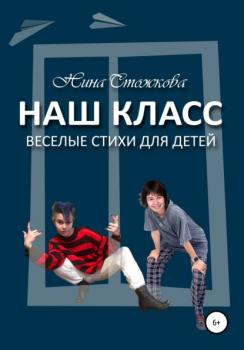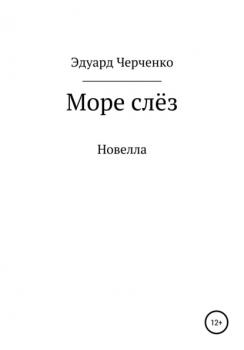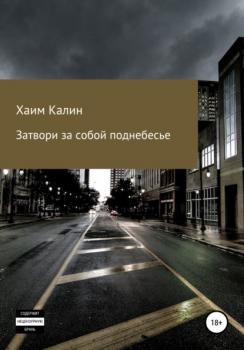Автор
Все книги издательства АвторАлкогольное сердце
Это книга мне в голову пришла не сразу. Понадобилось время и теперь я горжусь своим произведением.
Больше, чем просто душевно!
Могут ли деньги занимать в жизни человека первое место или же есть в ней что-то большее? Насколько важно оставаться собой и сохранять внутри себя человека?
Наш класс. Весёлые стихи для детей
Герои весёлых стихов Нины Стожковой учатся в каждом классе и в каждой школе. Автор много лет проработала главным редактором популярного детского журнала "Миша" (Н.В. Грозова) и надеется, что школьникам понравится узнавать в книге своих друзей и, конечно, себя.
Тайна огня
Удивительные события происходят, когда в твою жизнь вмешиваются внешние силы и возлюбленный превращается в монстра. Но еще удивительнее, когда узнаешь, что ты из параллельного мира и будущее миров зависит от тебя. Два мира-близнеца, что происходит в первом мире – эхом отзывается во втором. События и персонажи переплетены как ветви Древа Жизни.
Море слёз
Вселенная обладает скрытым от нас потенциалом, как для созидания, так и для разрушения. Иногда, используя свою разрушительную мощь, она созидает что-то новое, неожиданное и работающее на благо человека.
Затвори за собой поднебесье
Можно ли скрестить пронзительную love story , обрушившуюся на героев, с перипетиями крутого детектива, обосновавшегося в формате бондианы? Смогут ли влюбленные выбраться из коловорота чувст и враждебных к ним обстоятельств? Переживут ли грозную драматургию сюжета? Таковы проблемы, решаемые автором в фабуле произведения, оставляющего послевкусие дивной реалистичности происходящего. Содержит нецензурную брань.
Любовь по фэн-шую
Одна из моих подруг посоветовала: "Спотыкайся и падай возле него прямо на пол. Унизительно – но эффективно". Эффект один – порванные колготки, разбитое в кровь колено и двухчасовая адская боль. Другая моя подруга, суеверная фаталистка, предложила применить фэн-шуй для привлечения любви и внимания. Поможет ли? А все это из-за чего, спросите вы? Просто я безумно влюблена в своего босса, который, ну, совсем меня не замечает, словно я прозрачная, невидимая. Ну да, кто он, а кто я? Он самый прекрасный, бесподобно обаятельный и чудесный мужчина на свете, зеленоглазый шатен, а я обычная девчонка, с несбыточными, глупыми мечтами и многочисленными таракашками в голове.
Забытые
Не все трагедии сглаживает время. Иногда, отголоски минувшего остаются с нами навечно, постоянно напоминая о случившемся. Получив свое первое задание от редакции, молодая журналистка Катя Вяземская не могла даже представить, насколько крепко нити прошлого и настоящего могут переплетаться между собой, но чтобы узнать правду, ей придется распутать этот клубок, даже если ради этого нужно будет рискнуть собственной жизнью.









